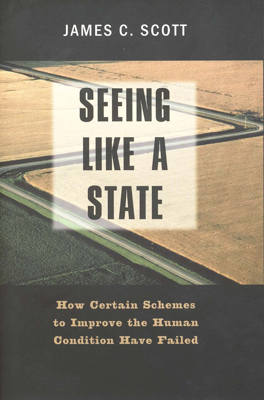Summary
In "Seeing Like a State" by James C. Scott, the book explores how state-driven schemes to impose order and uniformity on diverse, complex societies often lead to disastrous results, despite their well-intentioned motives. Central to Scott’s argument is the concept of “legibility,” where states simplify and standardize aspects such as forestry, agriculture, and even entire cities to facilitate management and taxation, often ignoring local knowledge and practices.
Scott begins with the example of scientific forestry in 18th-century Prussia, where government officials remodeled natural forests following rigid, mathematical formulas to optimize wood production, neglecting the forests' ecological functions. This model spread to various sectors, including urban planning where clean, orderly city designs replaced the complex organics of traditional settlements for ease of administration and control.
He discusses the transformative shifts from locally nuanced practices to generalized, homogeneous state systems. These include the standardized measurements for land holdings that disrupt established community arrangements but aid state governance and agricultural practices tuned to the responsiveness of large-scale state planning.
The critique broadens to "high modernism," an overconfidence in scientific and technical progress that underlies many of these simplification efforts. Scott critiques this ideology for often leading to authoritarian control, particularly under regimes aiming to reshape society drastically, like Soviet collectivization of agriculture under Stalin or villagization in Tanzania.
Scott advocates for a balance between universal state-driven initiatives and metis— local, practical knowledge that has evolved over time. He emphasizes that a respectful integration of local practices with state frameworks often leads to more sustainable, fruitful outcomes, suggesting that governance should adapt to the local knowledge landscape rather than reshape it entirely.
In conclusion, the book argues these high-modernist projects not only frequently fail but also strip communities of their complex social and ecological heritage. Scott elevates the importance of metis, proposing that effective statecraft must incorporate these local, evolved practices and insights to truly enhance and sustain the communities they aim to organize.
Per-chapter summary
- Nature and Space
- Cities, People, and Language
- Authoritarian High Modernism
- The High-Modernist City: An Experiment and a Critique
- The Revolutionary Party: A Plan and a Diagnosis
- Soviet Collectivization, Capitalist Dreams
- Compulsory Villagization in Tanzania: Aesthetics and Miniaturization
- Taming Nature: An Agriculture of Legibility and Simplicity
- Thin Simplifications and Practical Knowledge: Metis
- Conclusion
